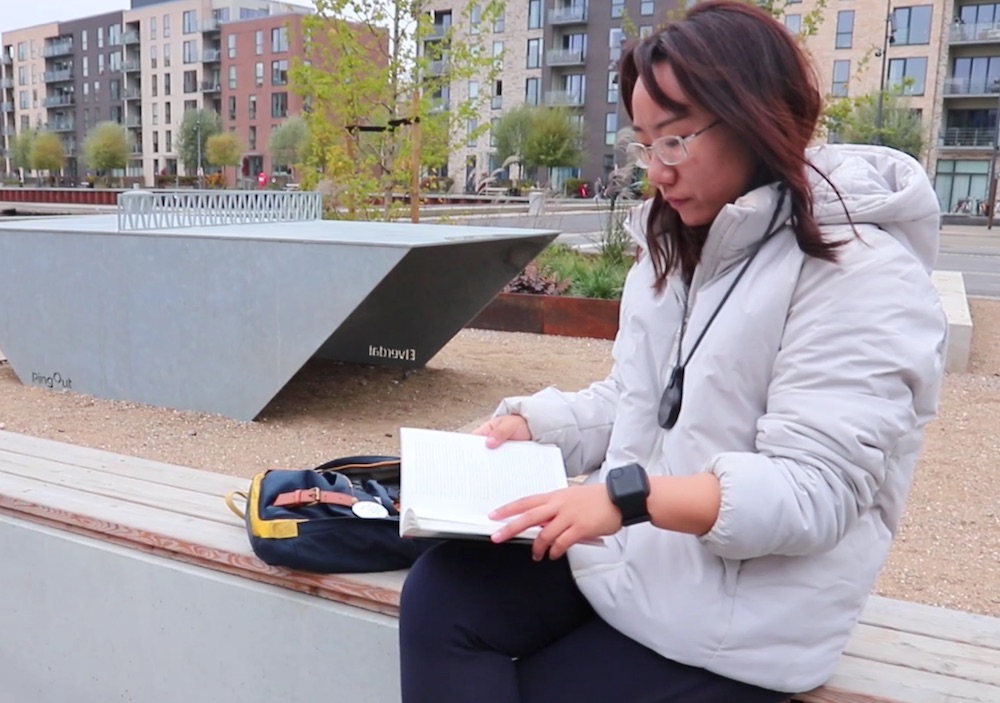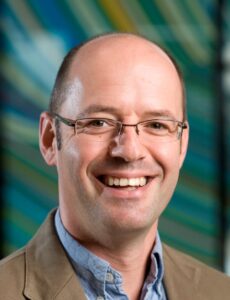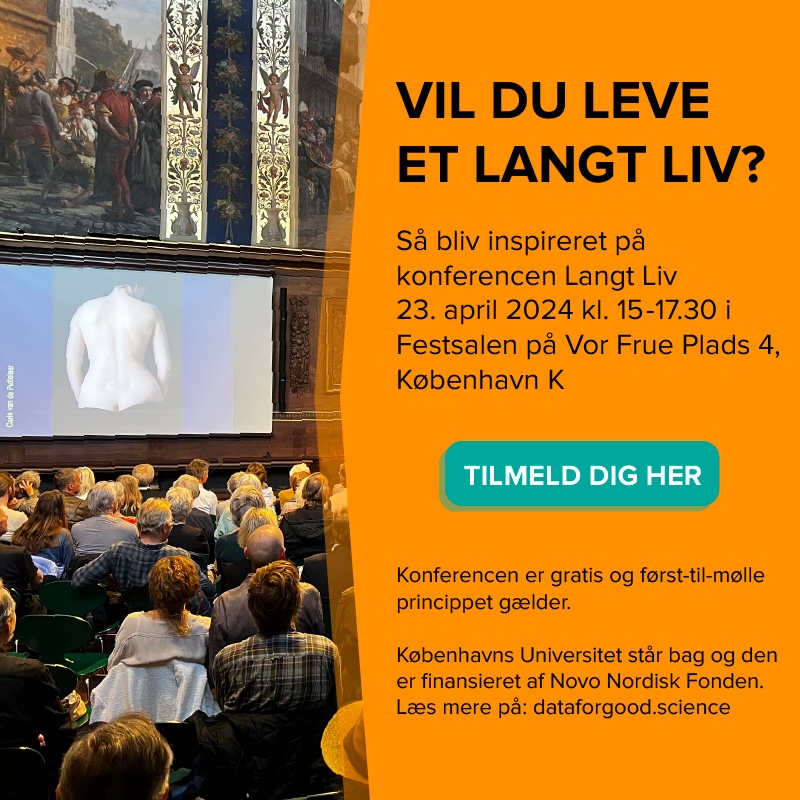
How Our Surroundings Affect Our Mental Health
They walk around the inner city of Copenhagen. Around their neck they wear a small front-facing camera catching a picture every 5th second from their chest of their urban experiences – be it a park or a concrete wall, a traffic jam or children playing. They wear a GPS gadget recording their locations. And finally, a health tracker around their wrist tracks their physiological reactions to the city scenery.
This is part of a PhD project, and it is about understanding how we humans react physiologically to our surroundings. Does the green view or the concrete wall make us happy or stressed out? Earlier studies have shown that the environment has a great impact on our physical and mental health, but there is a need for more in-depth studies, so we also know how to mitigate environment-related diseases.
Chinese Zhaoxi Zhang came to Denmark to do the PhD which is part of BERTHA, Denmark’s Big Data Center for Environment and Health, at Aarhus University. BERTHA was established and funded by Novo Nordisk Foundation’s Challenge6 projects. The idea behind BERTHA is:
- To take a whole life-course approach from conception to disease onset, to gather, link and analyse big data to be able to understand how different environmental conditions affect diseases such as cancer, heart and respiratory diseases, diabetes, neurological diseases, allergies, mental health and well-being
- To develop and expand mathematical models, methods and tools to handle the necessary data sources
- To increase the competencies of health and environmental researchers to understand and benefit from the Big Data revolution by creating a comprehensive and exceptional training package and program for PhD students, Post Docs and senior researchers
- To create strong national and international collaboration between researchers and partners focusing on the interplay between different environmental conditions, social impacts and human health.
Professor Clive Sabel is heading the center: 
“We have access to all environmental data in Denmark: water, soil, air. On top of that we are layering the environmental exposures. What are the causes of illnesses from an environmental point of view?” says Clive Sabel. “The area on data ethics is causing us challenges, as we need to know where people have been during their whole life- course, and that impinges on people’s privacy. Our role as scientists is to use the data to discover the cause of some diseases, whilst working within the data privacy constraints.”
According to the privacy policy and information letter in Zhaoxi Zhang’s PhD project Urban Health Sensing, all data collected will be anonymised and no identifiable data will be used in reports or publications – unless the participants explicitly give written consent. The recordings in the camera will only happen outside and in public space. Only the classifications of imagery will be used in data analysis, original images with clear figures will never be released in any circumstances. The data from the GPS and health tracker will be aggregated in the analysis, not for tracking personally.
Clive Sabel says: “We don’t store any of the personal data we use for research. That all remains securely within Statistics Denmark. We access data by secure remote logins and we cannot take out anything other than aggregated (and therefore anonymised) data. We can add our own data – eg. from the personal sensors, but we will never know who you are, as Statistics Denmark provide anonymous linkage. Statistics Denmark is a national treasure. It has so much value for science.”
The BERTHA center, which includes 30+ staff, is halfway through its 6 year’s duration, and they have already generated a lot of results particularly regarding our mental health. Over the next three years, the focus will also be on how different environmental conditions affect cancer, heart and respiratory diseases, diabetes, neurological diseases and allergies.
The center is also involved with developing tools like Luften på din vej, which shows which streets are most polluted in the cities. And there will be more tools to come.
Back to Zhaoxi Zhang’s Phd project: For now only 15 people have been measuring their reactions to the environment in a pilot for the PhD, which finished in December last year. Now, Zhaoxi Zhang is waiting for Cornona lock-down to be over and she hopes to equip up to 100 test persons with the three trackers and sensors, to arrive at a deeper understanding on how the urban environment affects our minds and mental health.

